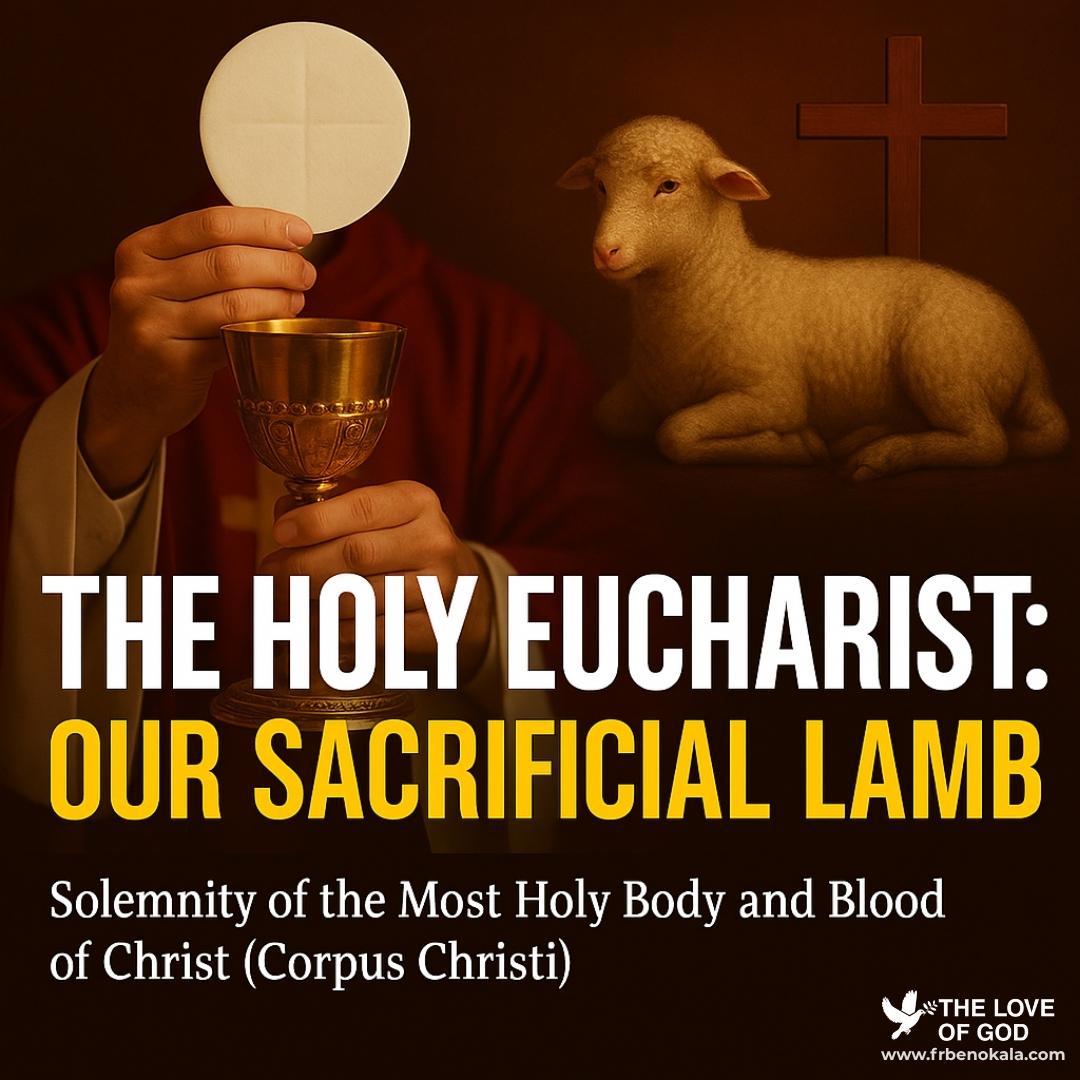HOMILY OF THE 16TH SUNDAY IN ORDINARY TIME, YEAR C
First Reading: Genesis 18:1–10; Second Reading: Colossians 1:24–28; Gospel: Luke 10:38–42
Hospitality is a sign of friendly service and generous reception, as well as entertainment for visitors, guests, and even strangers. This is one of the basic characteristic features Africans are well known for. Many decades ago, people could travel to any place within their country in search of greener pastures without being afraid of where to pass the night in case they couldn’t reach their destination before sunset. Life was simpler then, and kindness was extended without suspicion.
Unfortunately, the reverse seems to be the case nowadays. One of the causative factors is the global economic meltdown, which has engendered many hardships and criminality in our contemporary society. For instance, you may welcome an innocent-looking guest or visitor into your house, and in the night the person may wield a gun to dispossess you of your whole life’s savings, if not your life. The fear and mistrust created by these experiences seem to have dampened the spirit of hospitality, charity, and openness in many homes today.
SHOULD WE STOP BEING HOSPITABLE?
Regrettably, many people are now afraid to welcome unknown visitors into their homes or to travel, even to a nearby town or state, due to insecurity as well as the hostility they may experience. The love for neighbours that once defined communities is slowly dying out due to fear of betrayal or harm.
But the question is, must Christians abandon the virtue of hospitality in such a time as this? Should they refrain from hospitality because of hardships, challenges of life, or unforeseen circumstances? Certainly not. That is why we must always allow the Holy Spirit to guide our decisions and actions. The Christian life calls us to discern wisely but never to grow cold in love. Even in times of uncertainty, hospitality remains a profound act of faith, courage, and obedience to God’s command to love one another.
ABRAHAM’S HOSPITALITY TO STRANGERS BECAME A GATEWAY FOR HIS DIVINE BLESSINGS.
In the first reading, out of compassion, Abraham offered gratuitous hospitality to strangers in his house. He begged them to wait and eat before continuing their journey. Fortunately for him, they were Angels of God, who in turn blessed him for his kind gesture. Through them, God promised him a child, and he waited patiently for that promise, which later came to pass (Genesis 12:2-3, 18:10; Hebrews 6:14). Abraham’s simple gesture became a gateway for divine visitation.
Undoubtedly, this kind of generosity shown by Abraham towards his visitors is a good example and a sign of service to our neighbours, especially giving attention or a listening ear to those passing through difficulties. His story reminds us that often, divine breakthroughs are hidden in everyday acts of kindness. Indeed, as Scripture affirms, “Do not neglect to show hospitality to strangers, for by doing that some have entertained angels without knowing it” (Hebrews 13:2).
THE POWER OF LISTENING: A KIND OF HOSPITALITY THAT TOUCHES THE HEART OF CHRIST
In the Gospel, Mary and Martha were very happy to welcome Jesus Christ into their house. Mary gave Jesus close attention and a listening ear, while Martha was busy with the preparation of something that Jesus Christ would eat. At a point, Martha started complaining to Jesus that her sister Mary had left her to do the preparation alone. In response to Martha, Jesus Christ said, “Martha, Martha, you are anxious and troubled about many things; one thing is needful. Mary has chosen the good portion, which shall not be taken away from her” (Luke 10:41-42).
Moreover, Jesus Christ had turned aside to Bethany to find an oasis of calm away from the demanding crowds, if only for an hour or two. Perhaps this could be as a result of His impending passion, suffering, and death, which might have engendered serious tension in His heart. He needed somebody who would give Him a listening ear to talk to, and that was what Mary gave Him, which is also a wonderful skill and gift. This moment shows that hospitality is not just about doing but about being present—offering space for rest, healing, and intimacy with God.
THE SIGNIFICANCE OF MARY AND MARTHA’S HOSPITALITY TO JESUS CHRIST
It is worthy to note that Jesus Christ is not actually downplaying Martha’s charitable services. As a matter of fact, He wants us to understand that our service cannot be separated from hearing His Word. Both Mary and Martha rendered hospitable services to Jesus Christ, just like Abraham did for the strangers, despite his challenge of not having any child yet, even in his old age. This teaches that in every act of hospitality, God is not only present but also speaking.
Certainly, there will be times when we must act like Martha: giving our time, talents, material goods, and financial support in the service of God and humanity. On the other hand, there will be a period when we must act like Mary: just being present to God in our quiet times, listening to Him through meditating on the Scriptures, during Holy Mass, and before the Blessed Sacrament. Also, giving a listening ear to those who are truly in need is a spiritual work of mercy.
WHEN SUFFERING BECOMES HOSPITALITY: ST. PAUL’S MINISTRY OF SELF-GIVING
In the second reading, St. Paul showed himself as a model of service to his fellow brethren. He thus exclaimed: “I rejoice in my sufferings for your sake, filling up in my body what is lacking in Christ’s afflictions for the sake of His Body, the Church, of which I became a minister … to make the word of God fully known, the mystery hidden for ages and generations but now made manifest to His saints” (Colossians 1:24-25).
This is true Christian hospitality in action—offering oneself, even in pain, for the growth and salvation of others. Just like St. Paul, we are called to a hospitality that transcends comfort—a willingness to suffer, to be inconvenienced, to serve in silence, and to give of ourselves even when it costs us. Whether through patience with others, bearing daily crosses, or quietly interceding in prayer, we participate in the mystery of Christ’s love for His Body, the Church. This is the hospitality of the saints—where pain becomes prayer, and service becomes salvation.
CONCLUSION:
My dear friends in Christ, God is speaking to us each day in the events of our lives. However, very often we get so busy that we do not hear Him speak to us. We miss His signs and daily messages for us in the pursuit of other priorities. Silence, reflection, and hospitality allow us to detect God’s gentle knock on the door of our hearts.
Therefore, like Martha and Abraham, we are called to always show gratuitous hospitality to our neighbours. Also, just as Mary offered Jesus Christ her listening ear, we too need to give our listening ears and undivided attention to the less privileged and needy at all times, no matter our challenges. Let us not be listeners of the Word of God only, but also doers of the Word by rendering hospitality to people around us no matter how turbulent the challenges we are facing (James 1:22-23).
PRAYER:
May the Holy Spirit grant you the courage to always show gratuitous hospitality and also give a listening ear and undivided attention to the less privileged and needy at all times, no matter our challenges, through Jesus Christ our Lord, Amen.
🕊 Peace of Christ be with you…
Rev. Fr. Benjamin Okala, C.S.Sp.



